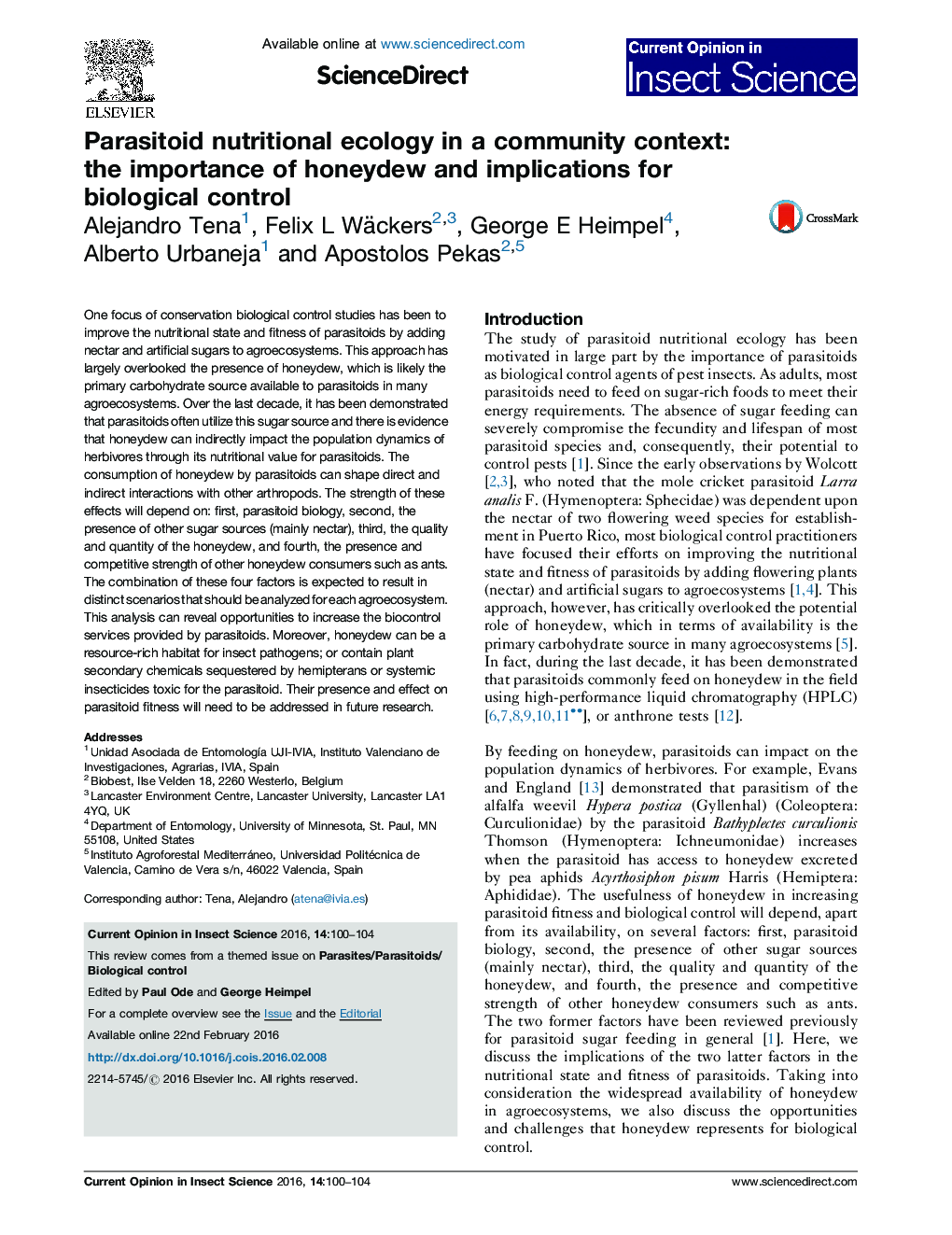| کد مقاله | کد نشریه | سال انتشار | مقاله انگلیسی | نسخه تمام متن |
|---|---|---|---|---|
| 4508186 | 1624376 | 2016 | 5 صفحه PDF | دانلود رایگان |
• Parasitoids commonly feed on honeydew, the primary carbohydrate source in many agroecosystems.
• The potential role of honeydew in biological control has been overlooked.
• The best honeydews for parasitoid's fitness are those excreted by hemipterans heavily tended by ants.
• Energy reserves of parasitoids are negatively associated with ant activity.
• Managing honeydew availability and quality may provide opportunities for biological control.
One focus of conservation biological control studies has been to improve the nutritional state and fitness of parasitoids by adding nectar and artificial sugars to agroecosystems. This approach has largely overlooked the presence of honeydew, which is likely the primary carbohydrate source available to parasitoids in many agroecosystems. Over the last decade, it has been demonstrated that parasitoids often utilize this sugar source and there is evidence that honeydew can indirectly impact the population dynamics of herbivores through its nutritional value for parasitoids. The consumption of honeydew by parasitoids can shape direct and indirect interactions with other arthropods. The strength of these effects will depend on: first, parasitoid biology, second, the presence of other sugar sources (mainly nectar), third, the quality and quantity of the honeydew, and fourth, the presence and competitive strength of other honeydew consumers such as ants. The combination of these four factors is expected to result in distinct scenarios that should be analyzed for each agroecosystem. This analysis can reveal opportunities to increase the biocontrol services provided by parasitoids. Moreover, honeydew can be a resource-rich habitat for insect pathogens; or contain plant secondary chemicals sequestered by hemipterans or systemic insecticides toxic for the parasitoid. Their presence and effect on parasitoid fitness will need to be addressed in future research.
Journal: Current Opinion in Insect Science - Volume 14, April 2016, Pages 100–104
